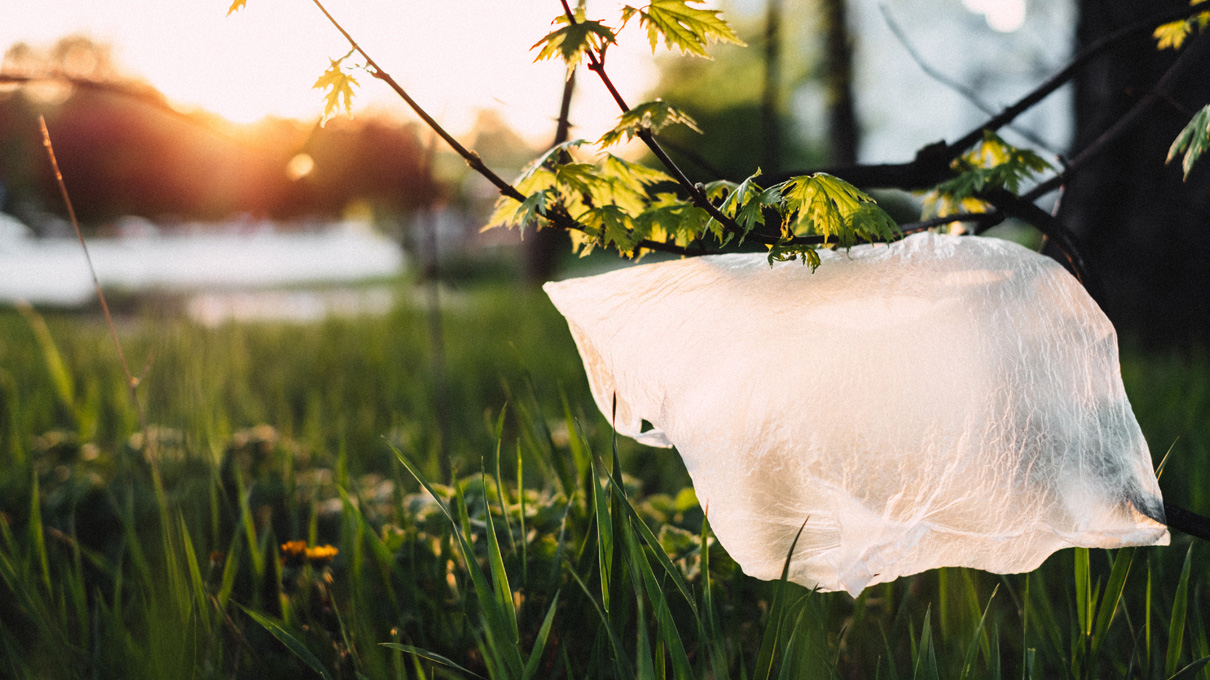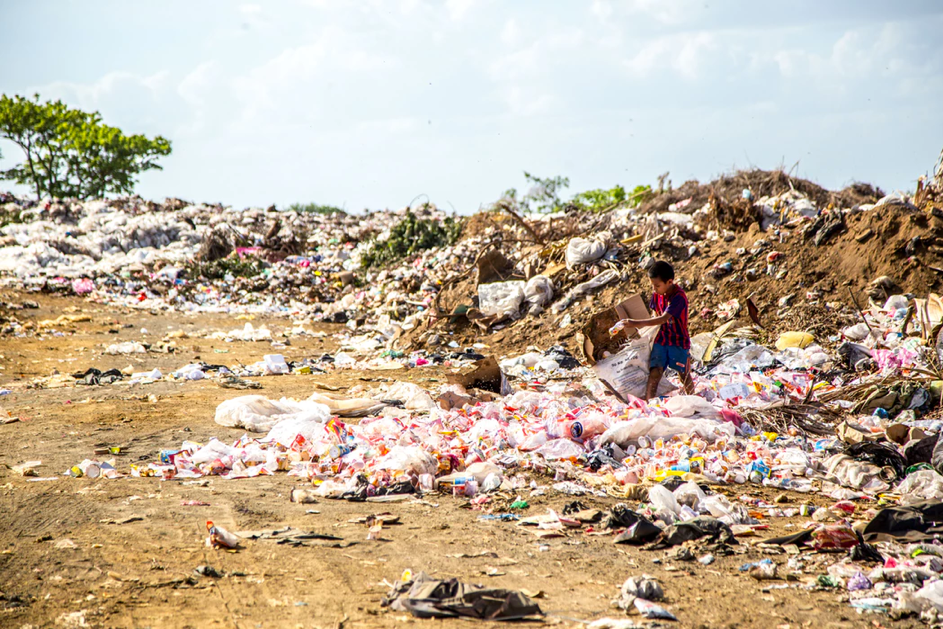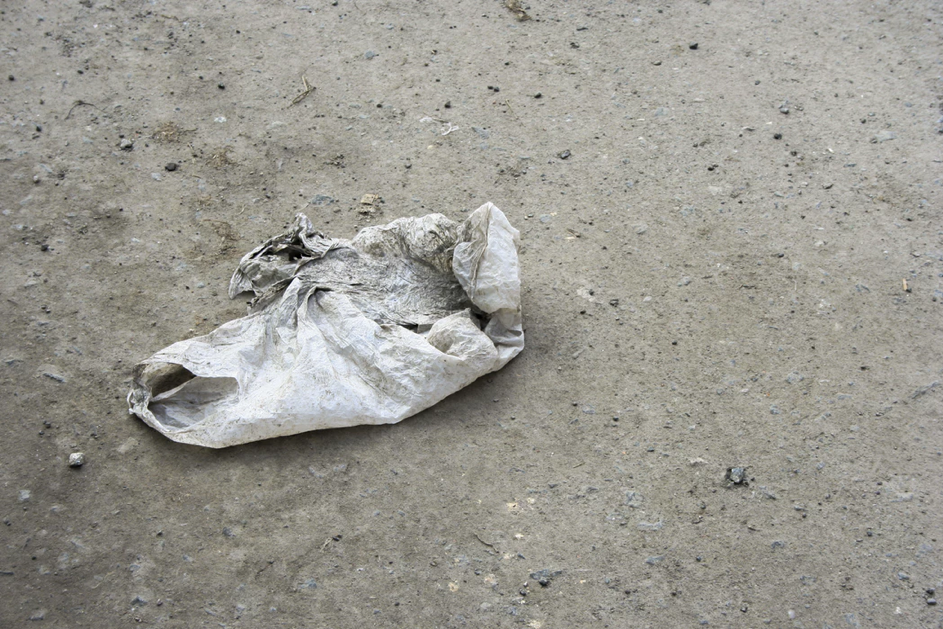

Why we should stop using oil based plastics
Most plastics used today are derived from petrochemicals, with the polymers coming from crude oil. These petrochemical based plastics are more commonly referred to as oil-based plastics[1]. Currently environmental and industry experts estimate that plastic production will increase 400% by the year 2050 [2]. The Ellen MacArthur Foundation published a report in 2016 raising concerns that by the same year the oceans will contain more plastic than fish [3]. Their report also noted the dire consequences our current plastic production has on natural resources, with plastics expected to consume 20% of all oil production within the next 30 years [3]. This is only if we continue to produce, use, and throw away plastic at the same rate we have the past 50 years. At the moment there has not been a significant decrease in the production of plastics, but awareness is on the rise as a global movement is slowly starting.
Material made to last forever in single use products
Let’s get our facts straight. Plastic has in the last 50 years or so become the number one material for a majority of goods we consume daily. It is durable, lightweight, and seals out oxygen, which makes it perfect for packaging. Furthermore, is also relatively cheap to produce. Plastics made from oil, are rich in carbon and a complex combination of thousands of other compounds. It needs to be processed heavily in order to be used [4].
There are reasons oil-based plastics have become the default for daily use and packaging. It doesn’t react chemically with other substances, which means plastic containers can hold lots of different contents, including alcohol, acid, and gasoline, without dissolving. The downside of it not reacting chemically with other substances: plastic doesn’t decay [5]. According to Plastic Oceans Foundation approximately half of the plastic production is used for single use products [6]. This is where the durability of plastic becomes a problem. The math is simple: a material made to last forever is not suitable to be used only once.
Micro plastics that end up in our bodies
According to a recent article in The Guardian [7], only 5% of plastics are recycled effectively, hence a lot end up where they shouldn’t. Around 40% of plastics end up in landfills, and a third, an estimated eight million tons of plastic, end up in natural habitats such as the ocean [8]. Once in the ocean the plastic debris break down into particles known as micro plastics [3]. The micro plastics absorb and concentrate the toxic chemicals, these in turn end up in our bodies through the seafood we eat [2]. Also, the micro plastic cause severe damage to the ocean’s ecosystem, killing and impairing sea life [6].

40% of plastics end up in landfills, without effective recycling
A global movement against plastic
A movement against oil-based plastic is starting to spread globally. Several initiatives alongside with bio-based alternatives are popping up regularly. The prime minister of India recently issued a ban against plastic, stating that the country will abolish single use plastic by 2022. Although the use of plastic per capita in India is lower than in other countries, for such a fast-growing economy this is a big step [9]. Another initiative is the UK Plastics Pact - a collaboration between businesses, governments, and NGO’s in order to tackle the issue of plastic waste by encouraging a circular economy for plastic use. Other countries are contributing by increasing the tax of plastic bags or banning them completely. As of May this year, 193 countries signed a UN resolution - part of their Clean Seas campaign – to form an Ocean conference, monitor and reduce plastic waste, and move to make dumping waste in the ocean illegal [10]. There is even a movement called Zero Waste that encourages people to eliminate their overall waste completely. As awareness of this crisis is rising, things are happening.

Banned: A number of countries have banned the regular plastic bag in order to reduce plastic waste.
Reduce, reuse, recycle
As we keep striving towards a completely compostable diaper, let’s have a look on what else needs to be done. A common mantra used in the eco world is the memorable alliteration: Reduce, reuse, recycle. Some emphasize we should throw, ”Refuse”, ”Repair”, ”Repurpose” or ”Rot” into the mix but regardless of what words are used, the message is clear. We need to change the way we look at plastic use.
- Reduce
There is a need to drastically reduce our plastic waste. One step we all can take is to reduce and eventually eliminate the use of all single-use-disposable products. There are plenty of alternatives that aren’t oil based plastic to begin with, and you can always bring your own cup when you get coffee, as well as cutlery for the take-out lunch. If we all take a small step to reducing our plastic use each week image the impact in just one month. - Reuse
This is simple and applies to many types of products: reuse or repair instead of throwing away. Systems for reusable appropriate to-go food and beverage products need to be developed, but until they are - reuse what you already have! This goes not only for the coffee cup or take out cutlery, but your grocery shopping bag too. Always carry one with you, so you don’t have to buy a plastic bag every time you get groceries. - Recycle
If something can’t be reused, recycle it. In this way your waste can be used to make new products, this includes the plastic textiles used in your clothing. Not sure how to? Look up how it works where you live. Is not enough being done? Contact the city/municipality or whoever in charge and make them step up their game, community participation is key in ending our dependence upon single use plastics.
The non-plastic evolution
If we want our oceans to contain more fish than plastic and our bodies not to be contaminated with toxic micro plastics, we need to fundamentally change our view on plastic use. Join us in the non-plastic evolution. We believe it is the only way forward for you and the planet.
Last Updated: 2018.08.08
REFERENCES / READ MORE:
[1]American Chemistry Council®, 2010. Life cycle of a plastic product. [Online]
Available at: [LINK]
[3] Ellen MacArthur Foundation, 2016. THE NEW PLASTICS ECONOMY: RETHINKING THE FUTURE OF PLASTICS, s.l.: Ellen MacArthur Foundation. [LINK]
[5] FREUDENRICH, C. P., 2007. How Plastics Work. [Online] Available at: [LINK]
[8] Jambeck, J. R. et al., 2015. Plastic waste inputs from land into the ocean. Science, 347(6223), pp. 768-771. [LINK]
[2] Koelmans, A. A., Foekema, E. M., Wegner, A. & Besseling, E., 2013. Plastic as a Carrier of POPs to Aquatic Organisms: A Model Analysis. Environmental Science and Technology, 47 (14), p. 7812–7820. [LINK]
[9] Nonwovens Industry, 2018. India PM Issues Plastic Ban. [Online]
Available at: [LINK]
[6] Plastic Oceans Foundation , 2018. The Facts. [Online] Available at: [LINK]
[4] Plastics Europe , 2018. How Plastics are Made. [Online]
Available at: [LINK]
[10] United Nations, 2018. UN’s mission to keep plastics out of oceans and marine life. [Online]
Available at: [LINK]
[7] Wearden, G., 2016. More plastic than fish in the sea by 2050. The Guardian, 19 January. [LINK]
Available at: [LINK]
[3] Ellen MacArthur Foundation, 2016. THE NEW PLASTICS ECONOMY: RETHINKING THE FUTURE OF PLASTICS, s.l.: Ellen MacArthur Foundation. [LINK]
[5] FREUDENRICH, C. P., 2007. How Plastics Work. [Online] Available at: [LINK]
[8] Jambeck, J. R. et al., 2015. Plastic waste inputs from land into the ocean. Science, 347(6223), pp. 768-771. [LINK]
[2] Koelmans, A. A., Foekema, E. M., Wegner, A. & Besseling, E., 2013. Plastic as a Carrier of POPs to Aquatic Organisms: A Model Analysis. Environmental Science and Technology, 47 (14), p. 7812–7820. [LINK]
[9] Nonwovens Industry, 2018. India PM Issues Plastic Ban. [Online]
Available at: [LINK]
[6] Plastic Oceans Foundation , 2018. The Facts. [Online] Available at: [LINK]
[4] Plastics Europe , 2018. How Plastics are Made. [Online]
Available at: [LINK]
[10] United Nations, 2018. UN’s mission to keep plastics out of oceans and marine life. [Online]
Available at: [LINK]
[7] Wearden, G., 2016. More plastic than fish in the sea by 2050. The Guardian, 19 January. [LINK]

